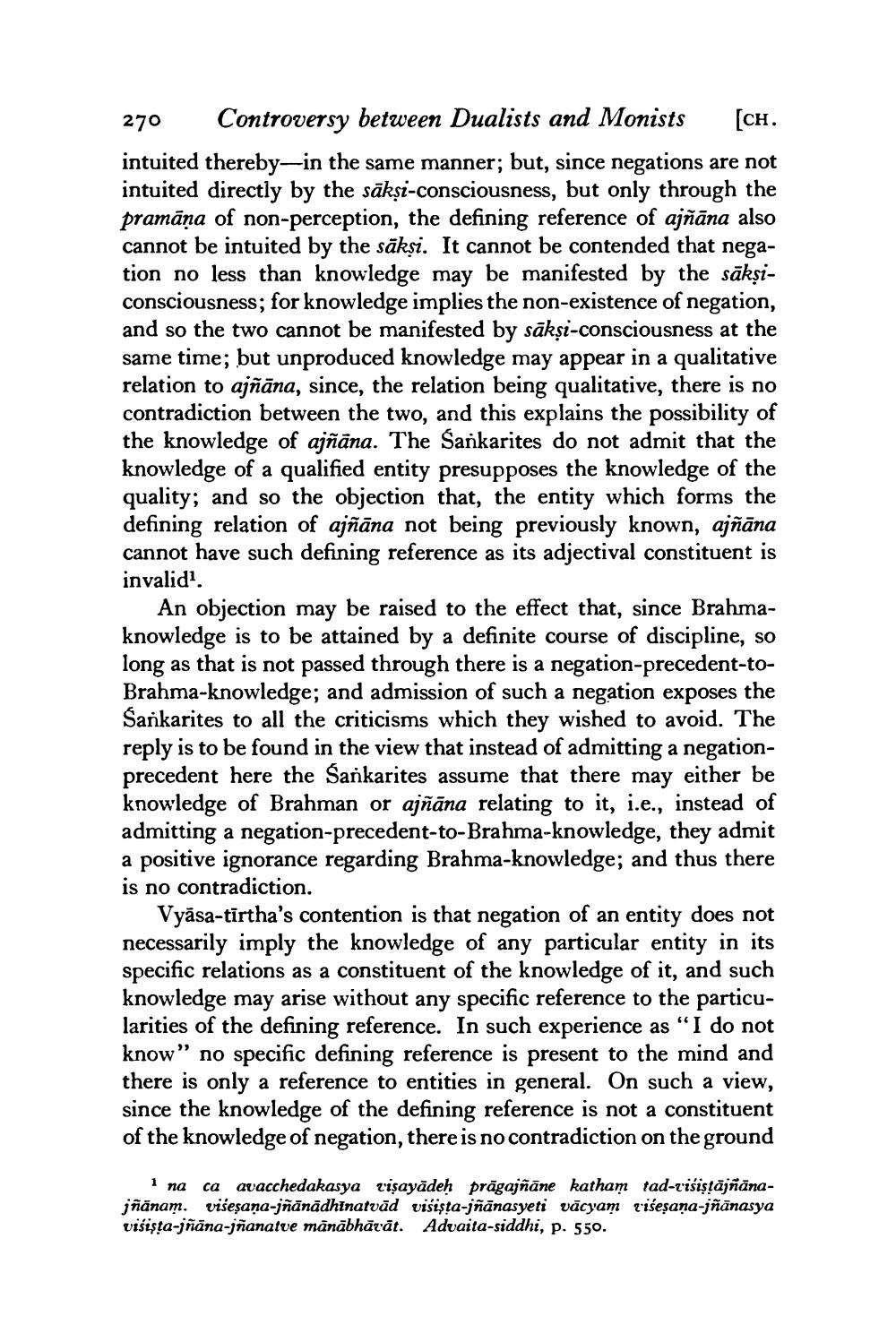________________
270 Controversy between Dualists and Monists [CH. intuited thereby—in the same manner; but, since negations are not intuited directly by the sākṣi-consciousness, but only through the pramāņa of non-perception, the defining reference of ajñāna also cannot be intuited by the sāksi. It cannot be contended that negation no less than knowledge may be manifested by the sāksiconsciousness; for knowledge implies the non-existence of negation, and so the two cannot be manifested by sākṣi-consciousness at the same time; but unproduced knowledge may appear in a qualitative relation to ajñāna, since, the relation being qualitative, there is no contradiction between the two, and this explains the possibility of the knowledge of ajñāna. The Sankarites do not admit that the knowledge of a qualified entity presupposes the knowledge of the quality; and so the objection that, the entity which forms the defining relation of ajñāna not being previously known, ajñāna cannot have such defining reference as its adjectival constituent is invalidl.
An objection may be raised to the effect that, since Brahmaknowledge is to be attained by a definite course of discipline, so long as that is not passed through there is a negation-precedent-toBrahma-knowledge; and admission of such a negation exposes the Sankarites to all the criticisms which they wished to avoid. The reply is to be found in the view that instead of admitting a negationprecedent here the Sankarites assume that there may either be knowledge of Brahman or ajñāna relating to it, i.e., instead of admitting a negation-precedent-to-Brahma-knowledge, they admit a positive ignorance regarding Brahma-knowledge; and thus there is no contradiction.
Vyāsa-tīrtha's contention is that negation of an entity does not necessarily imply the knowledge of any particular entity in its specific relations as a constituent of the knowledge of it, and such knowledge may arise without any specific reference to the particularities of the defining reference. In such experience as "I do not know" no specific defining reference is present to the mind and there is only a reference to entities in general. On such a view, since the knowledge of the defining reference is not a constituent of the knowledge of negation, there is no contradiction on the ground
i na ca avacchedakasya risayādeh prāgajñāne katham tad-rišiştājñānajñānam. višeşana-jñānādhinatvād visista-jñānasyeti vācyam tiśeşana-jñānasya višişta-jñāna-jñanatue mānābhāvāt. Advaita-siddhi, p. 550.




